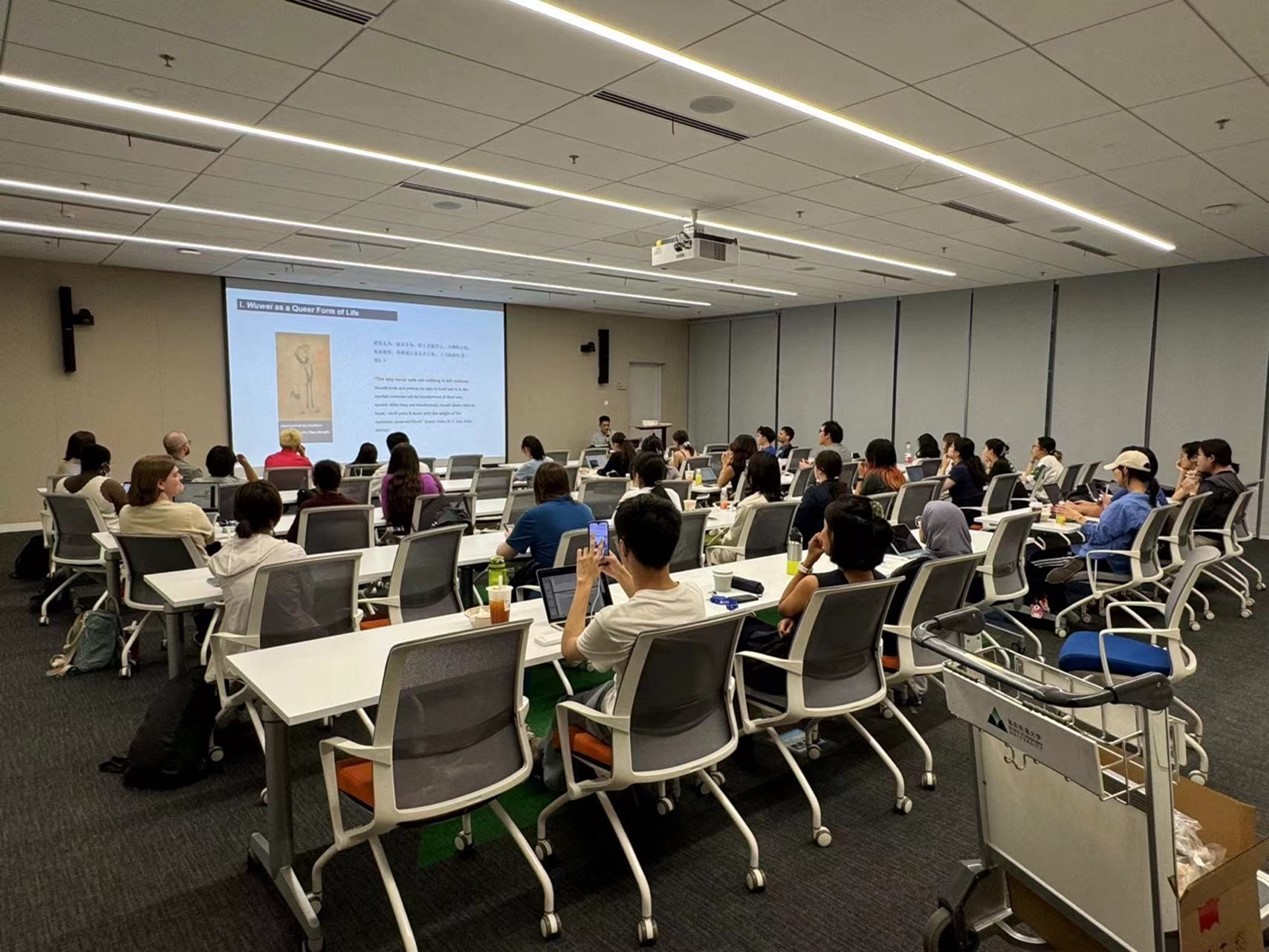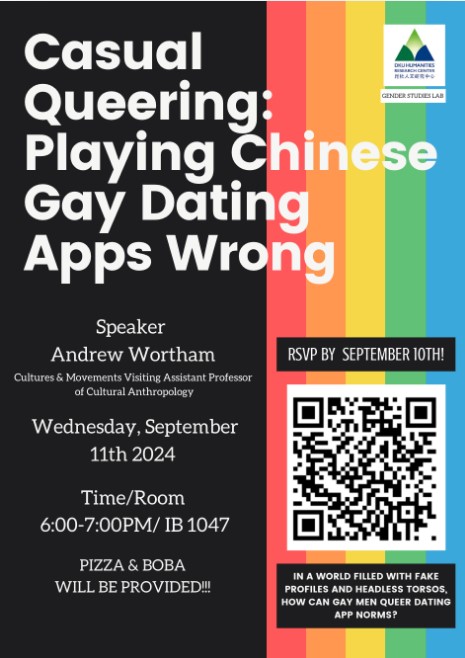By Xinyu Liao, Class of 2027
 On September 24, 2024, a thought-provoking panel discussion focusing on the intersection of gender and labor was held by the HRC’s Gender Studies Lab in the Water Pavilion. The panel featured distinguished professors, including Sajida Tuxun, who researches female waitresses and caregivers; Nellie Chu, who studies gender in the context of fast fashion and migrant labor; and Jaehee Choi, who examines social policy and labor market dynamics. Together, they shared insights on the experiences of women in the service industry and the broader implications of social norms and policies. About 40 students and 10 faculty members attended.
On September 24, 2024, a thought-provoking panel discussion focusing on the intersection of gender and labor was held by the HRC’s Gender Studies Lab in the Water Pavilion. The panel featured distinguished professors, including Sajida Tuxun, who researches female waitresses and caregivers; Nellie Chu, who studies gender in the context of fast fashion and migrant labor; and Jaehee Choi, who examines social policy and labor market dynamics. Together, they shared insights on the experiences of women in the service industry and the broader implications of social norms and policies. About 40 students and 10 faculty members attended.
Professor Sajida Tuxun opened the discussion by addressing the emotional labor expected of female waitresses, emphasizing the challenges of representation in a male-dominated workplace. She highlighted the unique regional characteristics of caregivers and the impact of high mobility and instability on their experiences, noting that current policies significantly shape working conditions for women in these roles. This foundation set the stage for a deeper exploration of gender dynamics in the workplace.
Building on Professor Tuxun’s insights, Professor Nellie Chu elaborated on how gender divisions influence access to private spaces and field sites. She discussed the subtleties of gendered language in the workplace, particularly the reluctance of women to publicly claim authority, which reinforces traditional gender roles. She examined the distinction between “work” and “labor,” pointing out how much of women’s labor remains invisible and unrecognized, particularly in wage relations. Her contributions underscored the pervasive challenges women face in asserting their identities and roles within professional settings.
 Transitioning to a broader context, Professor Jaehee Choi contributed by discussing the “M-shaped curve” labor force participation of Korean and Japanese women, characterized by declines in employment after childbirth and subsequent increases as children grow older. She then discussed a recent South Korean policy to improve the low fertility rate, in which the government provided monetary compensation to households for their childbirth. However, researchers found that parents spent it to invest in their children’s private education rather than basic child-rearing expenses as initially intended. This analysis highlighted the highly competitive Korean society that may deter childbearing among married couples and emphasized the need for systemic changes to support working families.
Transitioning to a broader context, Professor Jaehee Choi contributed by discussing the “M-shaped curve” labor force participation of Korean and Japanese women, characterized by declines in employment after childbirth and subsequent increases as children grow older. She then discussed a recent South Korean policy to improve the low fertility rate, in which the government provided monetary compensation to households for their childbirth. However, researchers found that parents spent it to invest in their children’s private education rather than basic child-rearing expenses as initially intended. This analysis highlighted the highly competitive Korean society that may deter childbearing among married couples and emphasized the need for systemic changes to support working families.
The conversation then shifted back to the experiences of women in the service industry, with Professor Tuxun highlighting the early pregnancies of many young migrant waitresses. These early pregnancies often lead to conflicts between work and familial responsibilities, complicating their professional trajectories. She contrasted high-end caregivers, who receive better pay and have different requirements compared to traditional “保姆” (nannies), reflecting on the global dynamics of domestic labor. This discussion illuminated the nuanced realities faced by women navigating both professional and personal demands.
In closing, Professor Chu emphasized the importance of understanding what constitutes a reproductive body within the labor context. She discussed the complexities of bargaining in workplace relationships, illustrating how women’s labor often goes unrecognized despite being crucial to family and societal structures. This final point reinforced the need for a comprehensive understanding of women’s contributions to both the economy and the home, calling for greater recognition and support in addressing gender disparities.
To conclude, the panel provided a comprehensive overview of the multifaceted challenges women face in the labor market, revealing the need for policies that recognize and address gender disparities. The insights shared by the panelists sparked meaningful dialogue about the future of women’s labor in an evolving economic landscape, concluding with a call for further research and advocacy aimed at improving the working conditions and recognition of women in various sectors.


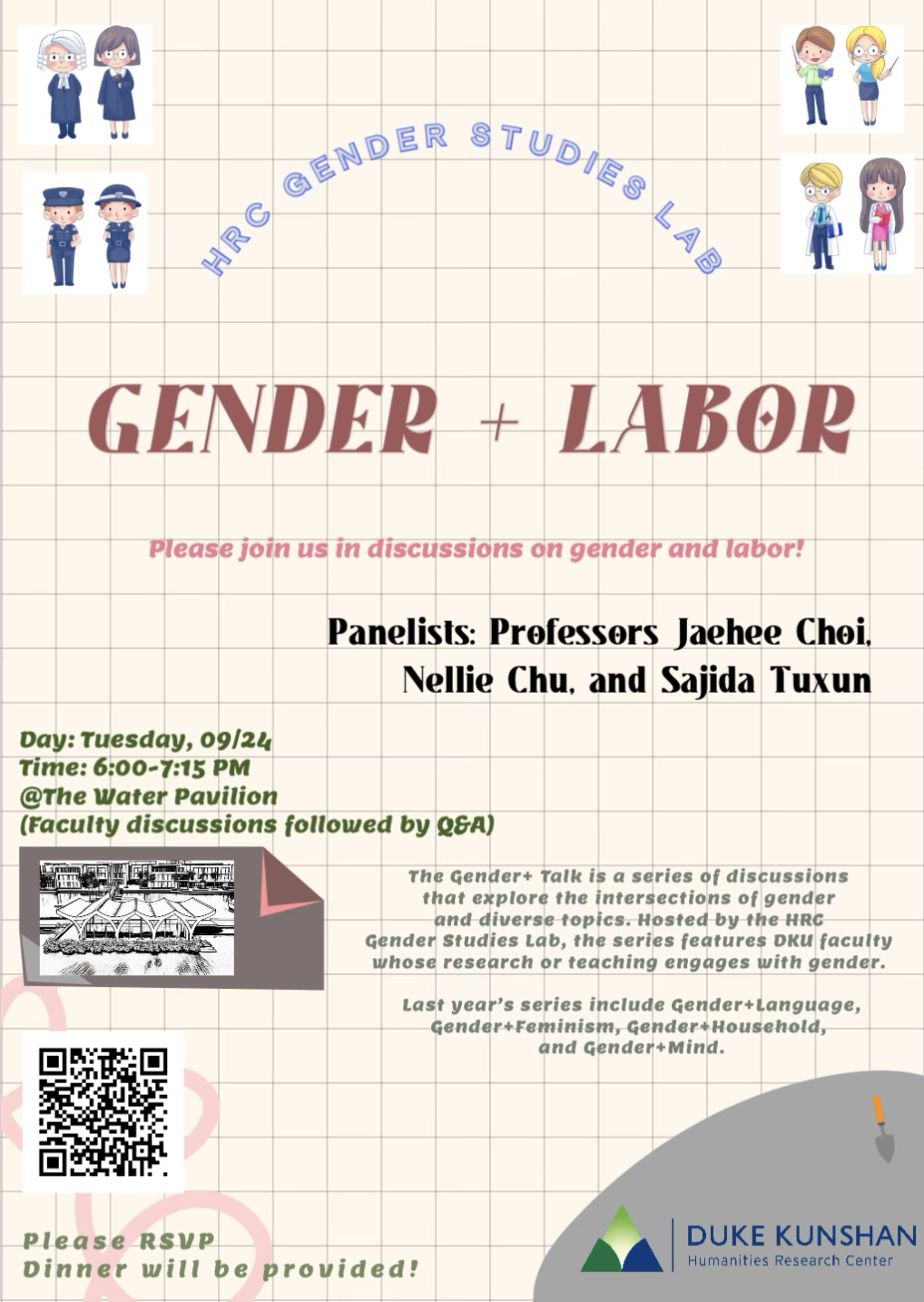
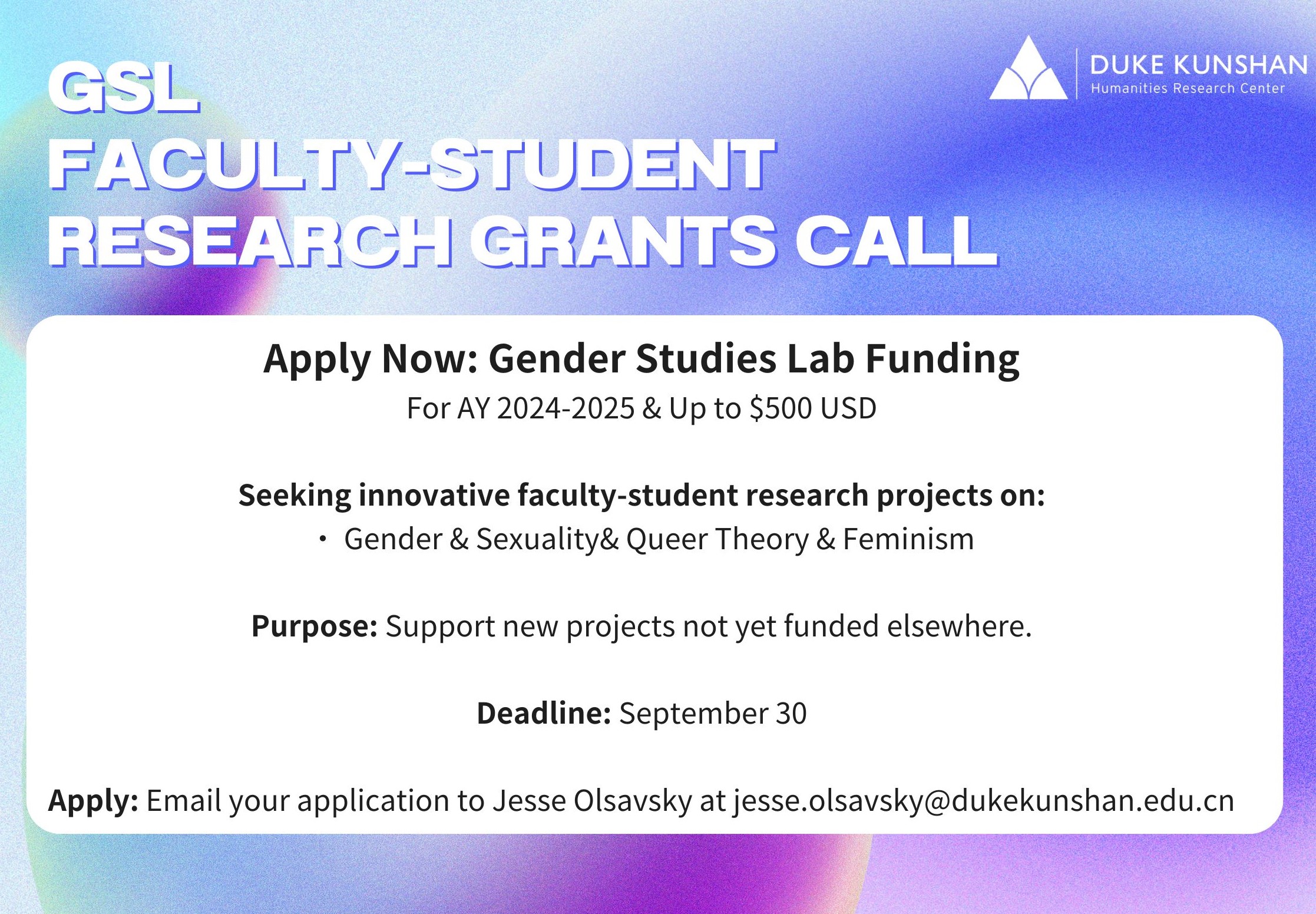
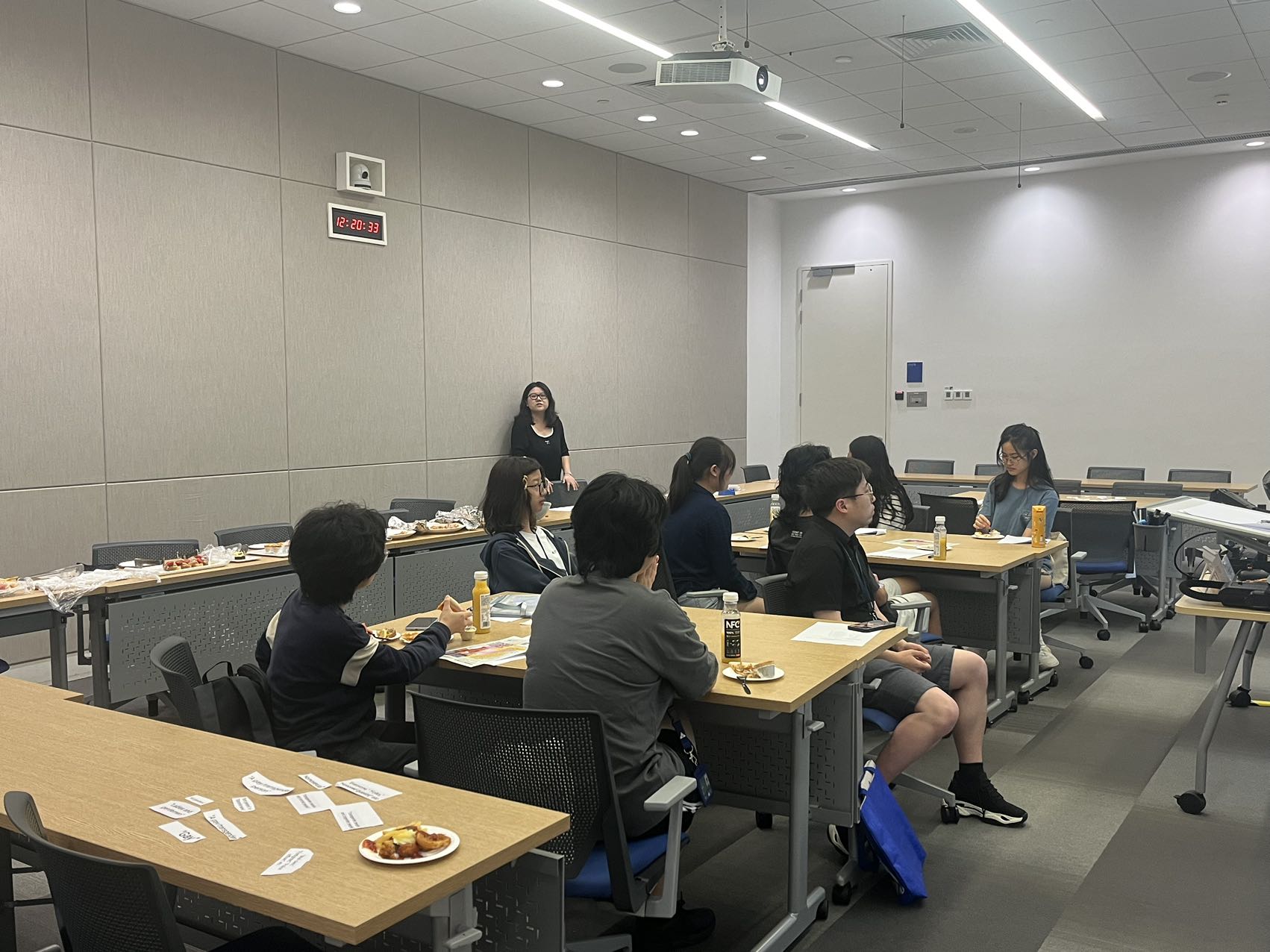 On Friday, September 6, 2024, DKU faculty, staff, and students gathered for our first reading group session on “Embracing Diversity: Developing Cultural Competence for Inclusive Education.” This marks the second year of hosting this event, and we were excited to welcome returning participants as well as first-year students.
On Friday, September 6, 2024, DKU faculty, staff, and students gathered for our first reading group session on “Embracing Diversity: Developing Cultural Competence for Inclusive Education.” This marks the second year of hosting this event, and we were excited to welcome returning participants as well as first-year students.